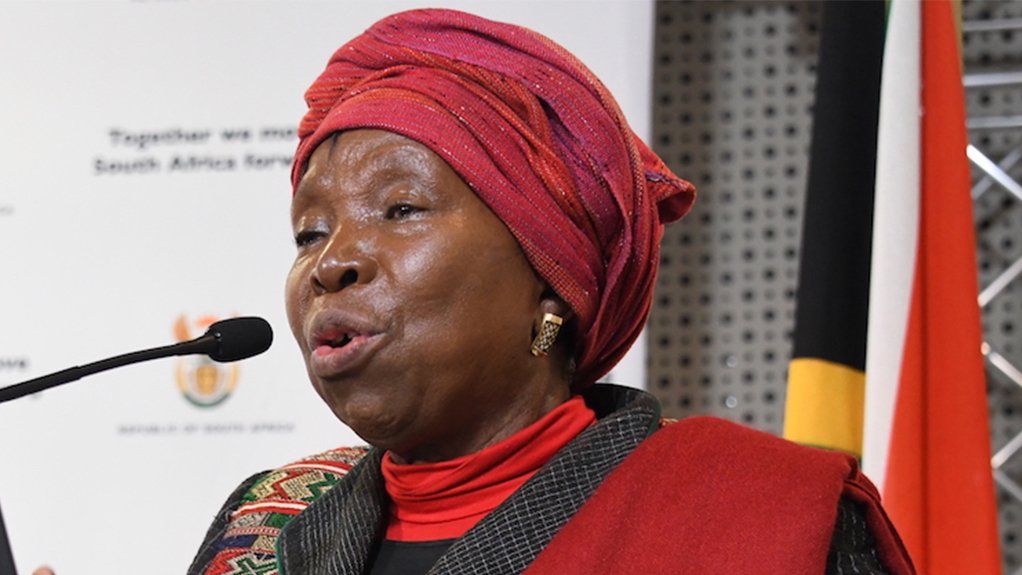British American Tobacco South Africa (Batsa) on Wednesday told the Western Cape High Court that the Gauteng division clearly erred when it dismissed an earlier challenge to the country's tobacco sales ban by giving Cooperative Governance Minister Nkosazana Dlamini-Zuma a free pass on showing the measure was necessary to contain the Covid-19 pandemic.
Advocate Alfred Cockrell, SC, argued that industry rival the Fair-Trade Independent Tobacco Association (Fita) had correctly asserted that section 27 of the Disaster Management Act obliges the minister to clear the threshold of necessity.
Citing the Constitutional Court's narrow reading of necessity in Pheko v Ekurhuleni Metropolitan Municipality, he said the High Court in Pretoria wrongly refused to hold her to it stringently in the Fita case on the basis that the cited case law pertained to a local and not a national disaster, like the contested Covid-19 regulations.
The high court had effectively collapsed the necessity test into that of rationality, which all laws must pass.
"With the greatest of respect to the court, that is clearly wrong, or at least substantially erroneous."
Necessity is a far more onerous test than rationality, which the Gauteng High Court found the minister had passed when she gazetted regulations banning the sale of tobacco products.
Cockrell said in order for Dlamini-Zuma to pass the correct test in administrative law, she needed to show that it was necessary to prohibit tobacco sales in order to stop smokers falling severely ill with the coronavirus and placing a greater burden on the country's health services.
But the minister makes a fatal concession to her case by admitting that the medical literature is not "absolutely conclusive" on the link between smoking and severe cases of the disease, Cockrell argued.
Her strongest medical argument in her court papers comes from an expert who is not a medical doctor and deems that quitting smoking gives one's lungs "a fighting chance" in case of infection.
Fita has turned to Supreme Court of Appeal to review the Gauteng ruling.
Batsa on Wednesday went further in its arguments than its industry rival and attacked the constitutionality of the ban as affects not only cigarette makers, but tobacco farmers and consumers.
Cockrell said the minister's claim that smokers cannot challenge the ban because the wording of regulation 45 casts it as prohibition aimed primarily at tobacco products trade was risible.
The minister's lawyers contend that any infringement on the rights of smokers to privacy, dignity and autonomy was auxiliary, and cannot not be raised in court. Instead, they said the case rests only on whether the constitutional right to choose a trade as enshrined in section 22 of the Constitution had been violated in respect of tobacco companies.
Cockrell said this was an "extraordinary argument because the whole purpose of the prohibition is to stop smoking".
"We are mystified by that argument... Our learned friends are desperate to say this is not a case about the rights of consumers but about the rights of the seller."
Cockrell then pointed to the government's oft-voiced explanation that the ban sought to prevent smokers from consuming tobacco to spare the already strained health care system.
"Far from being auxiliary, that is the whole purpose of the prohibition," he added.
Cockrell also took issue with the minister's argument that the ban did not violate the constitutional rights of tobacco growers because they were not prevented from continuing their trade and were at worst confronted with a temporary cash flow problem because the prohibition had lowered demand for their product.
"The minister is, from the lofty heights of her desk in Pretoria, saying it is just a cash flow problem," he said.
This was not true or helpful, Cockrell continued, because the end result of farmers being unable to sell their tobacco was to go out of business. Moreover, the minister had given no indication of how long the ban, which began on March 27, would remain in place.
Dlamini-Zuma has advanced that 10 to 15 percent of South Africa's roughly eight million smokers would quit because they cannot pay the exorbitant prices for which cigarettes sell on the black market under the ban.
Cockrell countered: "In constitutional terms that is a perverse justification because in order to achieve the outcome she wants to achieve she relies on illicit activity".
Experts cited by the minister said that if all the country's smokers quit, this would potentially free up 4 000 hospital beds. But if the minister realistically expects only about one million smokers to quit, this would free up 500 hospital beds over the duration of the Covid-19 pandemic.
Cockrell said mathematically this meant that any given time the health services would have an additional 16.4 extra beds available on average.
Lawyers for the minister rejected his calculations, arguing that these were based on infection rates that may change as South Africa did not yet know the extent of the health crisis it was fighting.
Judge Hayley Slinger interjected that Batsa's concession of more available beds would allow the government to argue that the ban was protecting the supreme right to life, but the advocate said the prohibition would only draw legitimacy from that right if Dlamini-Zuma were able to show that "the system would cope in circumstances where it would not otherwise would cope".
He argued that she could not and the ban cost the fiscus R38-million a day in lost excise duties, which could go a long way towards building field hospitals and buying ventilators.
The hearing will continue on Thursday with lawyers for the minister responding to the constitutional arguments raised by Cockrell.
EMAIL THIS ARTICLE SAVE THIS ARTICLE
To subscribe email subscriptions@creamermedia.co.za or click here
To advertise email advertising@creamermedia.co.za or click here











